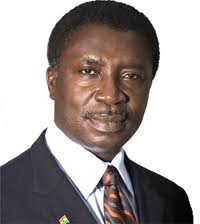
Professor Kwabena Frimpong –Boateng, former Chief Executive Officer of the Korle Bu Teaching Hospital, on Thursday said, the problem with African economies is not the lack of resources, but the inability to add value to these resources.
“For our economies to progress, we have to move on from just being satisfied with our raw materials, to adding value to them, for the benefit of our people.”
Prof Frimpong –Boateng, said this at a public lecture, to commemorate the 50th Anniversary Celebration of the University of Ghana Medical School in Accra.
The theme of his topic was “Heart Surgery in Ghana-the Past, Present and Future.”
He said it was unfortunate that in-spite of its great potential, cardiology in Ghana is still under-developed, adding that there is no Ghanaian International Cardiologist in the country.
Prof Frimpong-Boateng said according to world Health Organisation, the ideal standard to attain for a country, was an average of 400 heart operations per million people per year, adding that Ghana’s output was less than 200 per million per year.
He said corruption, lack of political will, the competing needs of society among other factors, had not made it possible for the country to develop its capacity to deal with heart related conditions.
Prof Frimpong Boating said the time had come for African governments to pay a lot more attention to the development of the human resource base.
“Sometimes, the good initiative of just one person could make all the difference. Typical examples of this can be seen in many countries, especially the developed world,” he said.
He said it was also very important for African governments to create a more conducive atmosphere that would encourage innovation, adding that innovative ideas from people in the various fields are crucial to progress.
Prof Frimpong-Boating said, rewarding people for their hard work was also very important because it brought out the best in them which in turn, benefited the whole country.
“We need to be supportive of each other, for the benefit of the larger society,” he said.**